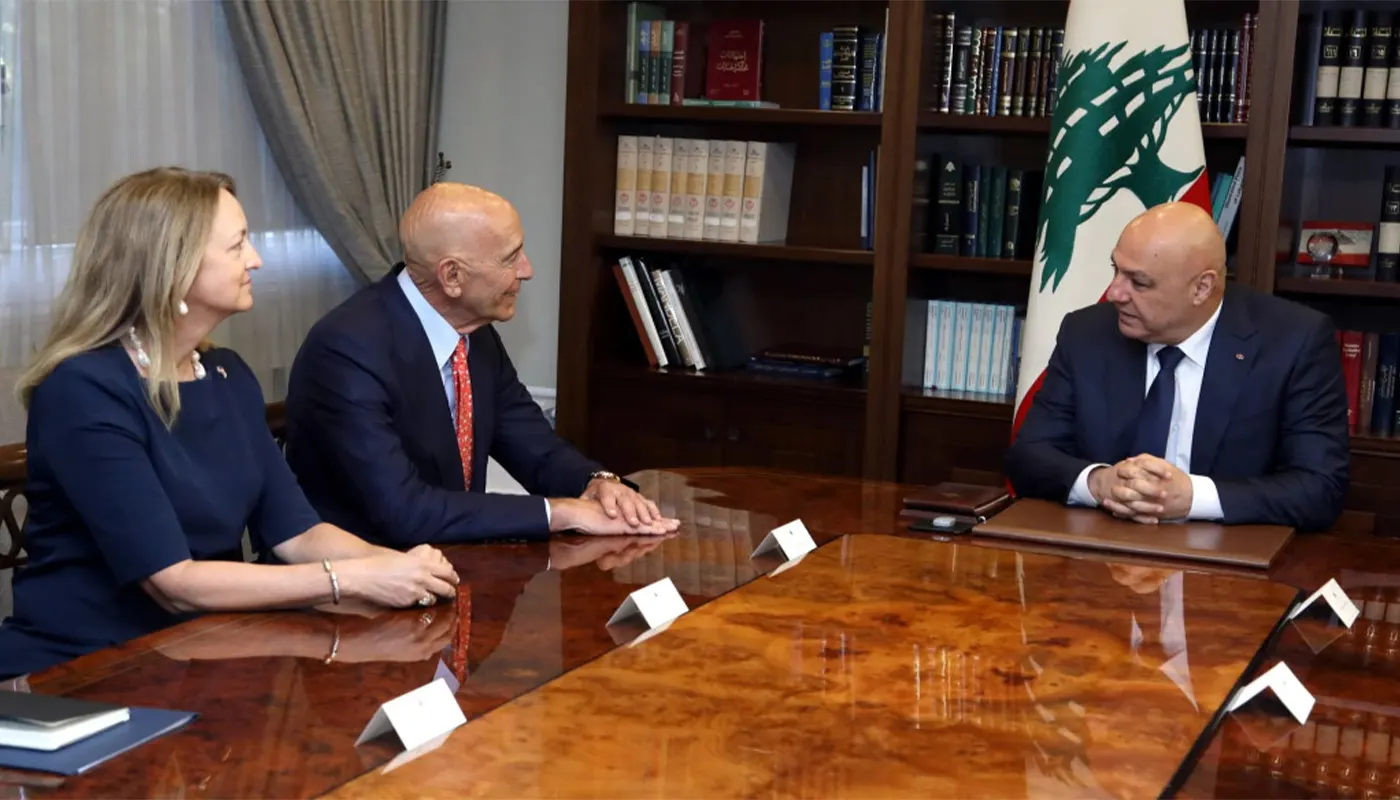BEIRUT – The United States has issued a sharp warning to Lebanon’s Hezbollah movement against entering the escalating conflict between Israel and Iran, amid intensifying diplomatic efforts to prevent a broader regional war.
Speaking from Beirut, Thomas Barrack, the U.S. Special Envoy for Syria and Ambassador to Türkiye, described any Hezbollah involvement in the conflict as “a very, very, very bad decision,” echoing the stance of President Donald Trump and senior U.S. officials. The comments, made during Barrack’s visit to Lebanon on Wednesday, underline Washington’s deep concern that the fragile ceasefire and regional containment could quickly unravel.
High-Stakes Diplomatic Engagement
During his visit, Barrack met with Lebanese President Joseph Aoun and Parliament Speaker Nabih Berri, a political ally of Hezbollah. According to U.S. officials, the envoy’s message was unambiguous: Hezbollah must refrain from military escalation, and Lebanon must adhere strictly to the terms of the 2024 ceasefire agreement and UN Security Council Resolution 1701, which mandates that only the state may possess weapons and exert military control, particularly south of the Litani River.
Barrack also reaffirmed U.S. support for strengthening the Lebanese Armed Forces (LAF), commending the government’s commitment to expanding troop deployments in the south. Lebanese authorities confirmed plans to deploy up to 10,000 soldiers, tasked with disarming non-state groups and securing the border, in coordination with UNIFIL peacekeepers.
“Lebanon’s stability and sovereignty are paramount,” Barrack said during a press briefing. “Any violation of that—especially by a non-state actor such as Hezbollah—risks dragging the region into a devastating and unnecessary war.”
Hezbollah’s Calculated Silence
Despite vocal expressions of solidarity with Iran, Hezbollah has not taken direct military action in response to Israeli airstrikes on Iranian military targets. Analysts and officials believe the group is exercising caution amid significant constraints. Hezbollah suffered heavy losses during last year’s war with Israel, including the deaths of senior commanders, thousands of fighters, and widespread destruction of its infrastructure.
In public statements, the group condemned Israeli aggression and affirmed its alignment with Iran’s “Axis of Resistance,” but has remained militarily restrained. Multiple sources confirmed that Lebanese leaders have quietly urged Hezbollah to avoid escalation, warning of devastating consequences should another war erupt on Lebanese soil.
Regional Implications and U.S. Strategy
Barrack’s dual role as envoy to Syria and ambassador to Türkiye reflects the widening scope of U.S. diplomacy, with Washington seeking to contain the Israel-Iran conflict not just in Lebanon, but across Syria, Iraq, and the broader region. His visit follows increased back channel coordination with regional capitals, including Ankara and Baghdad.
Analysts suggest that Hezbollah’s hesitation may be driven as much by geopolitical calculation as by internal Lebanese dynamics. The group faces growing political pressure domestically, as Lebanon grapples with an ongoing economic crisis and public discontent over the role of armed factions.
Meanwhile, Iran has signalled that its military response to Israeli actions will be “measured and proportional,” but tensions remain high after missile strikes and cyberattacks on both sides of the conflict.
A Crossroads for Lebanon
Lebanon finds itself on a geopolitical fault line. The government’s efforts to consolidate state control—long called for by Western powers—are progressing slowly but deliberately. President Aoun, in coordination with international partners, has committed to demilitarizing non-state actors and asserting national sovereignty.
Yet the country’s internal balance remains delicate. Hezbollah, while weakened militarily, retains substantial political influence and public support among segments of the population.
The coming days are considered crucial. Whether Hezbollah continues its current posture or is drawn into a broader confrontation could determine whether Lebanon remains a bystander—or becomes a battlefield.







